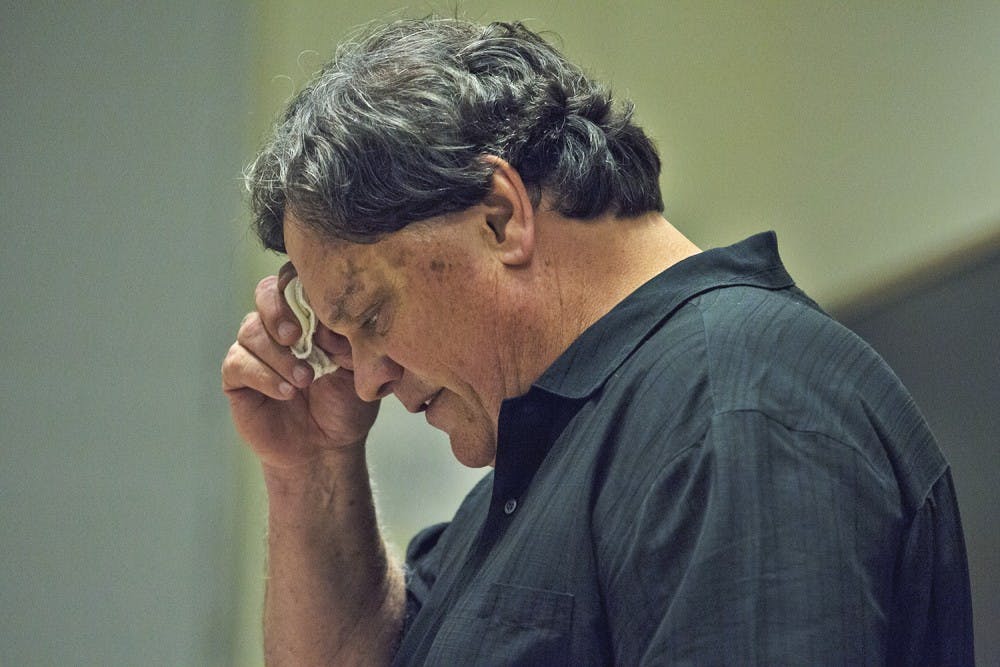“It cannot be reproved for professors to criticize the actions of the government — something doesn’t become unacceptable speech just because a politician says he doesn’t like it,” he said.
Nichol’s columns were controversial enough that he was asked to include a disclaimer, stating that his opinions were not the opinions of UNC.
UNC Provost Jim Dean said the University is committed to free speech and academic freedom. He said academic centers have a right and responsibility to speak about their research.
“Speaking out about research and public issues is certainly not unique to Professor Nichol — it’s something you will see across the whole University,” he said.
Nichol’s reputation as a free speech defender preceded his tenure as director of the poverty center. After a stint as dean of UNC School of Law, he served as president of the College of William & Mary in Virginia from 2005 to 2008.
While president, he made several controversial decisions. Against the college’s wishes, he allowed the “Sex Workers’ Art Show” to come to campus, citing a First Amendment responsibility to uphold free speech. He also decided to remove a cross in a secular, campus chapel, except when it was used to observe Christian holidays.
The school’s Board of Visitors chose not to renew his contract after the events. Nichol then returned to UNC’s law school as a tenured professor. He currently makes $212,900 annually.
Jack Boger, dean of the UNC School of Law, describes Nichol as enthusiastic and passionate, a gifted writer and speaker and a professor who challenges all students’ points of view.
“He is very forthright — he’s been described as pertinacious, willing to take on others, and I think that exacerbates some people,” he said.
Boger said there was no foundation for the board’s decision to close the poverty center. He defended the value of the center’s scholarship as well as Nichol’s role as director.
“Many students who take his courses in constitutional law have said that they had no idea, from the classroom, what his political views were,” he said.
To get the day's news and headlines in your inbox each morning, sign up for our email newsletters.
Nichol has been criticized by conservative think tanks, including the John Locke Foundation.
Mitch Kokai, the foundation’s spokesman, said while the board’s decision to close the center was not a result of Nichol’s politics, he had strayed from the board’s good side.
“I’m sure that members of the Board of Governors who read Gene Nichol’s column weren’t fans of Gene Nichol and didn’t really mind seeing him have to squirm as this process moved forward,” Kokai said. “Gene Nichol can talk about the political nature of higher education, but he’s one of the major contributors — he is spending much of his time bashing Republican lawmakers in regular columns rather than spending time working on dealing with the issues of poverty and improving the poverty programs we have.”
In response to the board’s review of the centers, students formed the UNC BOG Democracy Coalition. Shannon Brien, a UNC junior and member of the coalition, said she agreed with Nichol’s assertion that the center was closed on account of his political speech.
“Gene Nichol took a stance that had to do with policy and the politics going on in Raleigh, and the connection between the board members and the legislators is clear — they have the exact same political agenda, and anything that targets legislators is going to be taken out by the board,” she said.
Nichol said he’s proud of the state’s tradition of education, but he’s concerned it’s at risk.
“I came to the University of North Carolina’s campus for its remarkable commitment to public education — North Carolina has been the beacon of a public university which achieves greatness and clings to its sense of public obligation and sticks in the craw of the Board of Governors and its benefactors,” he said.
state@dailytarheel.com



